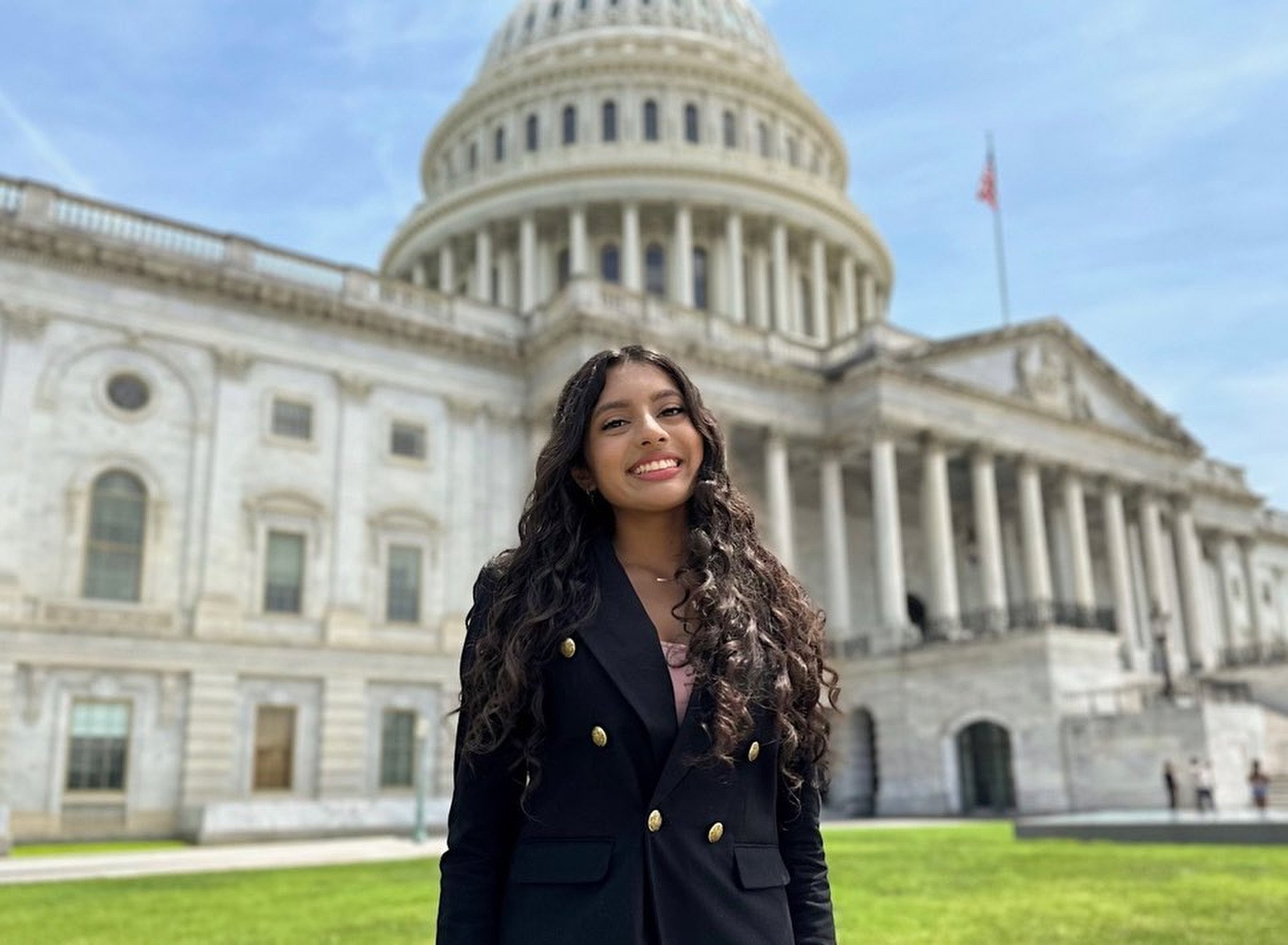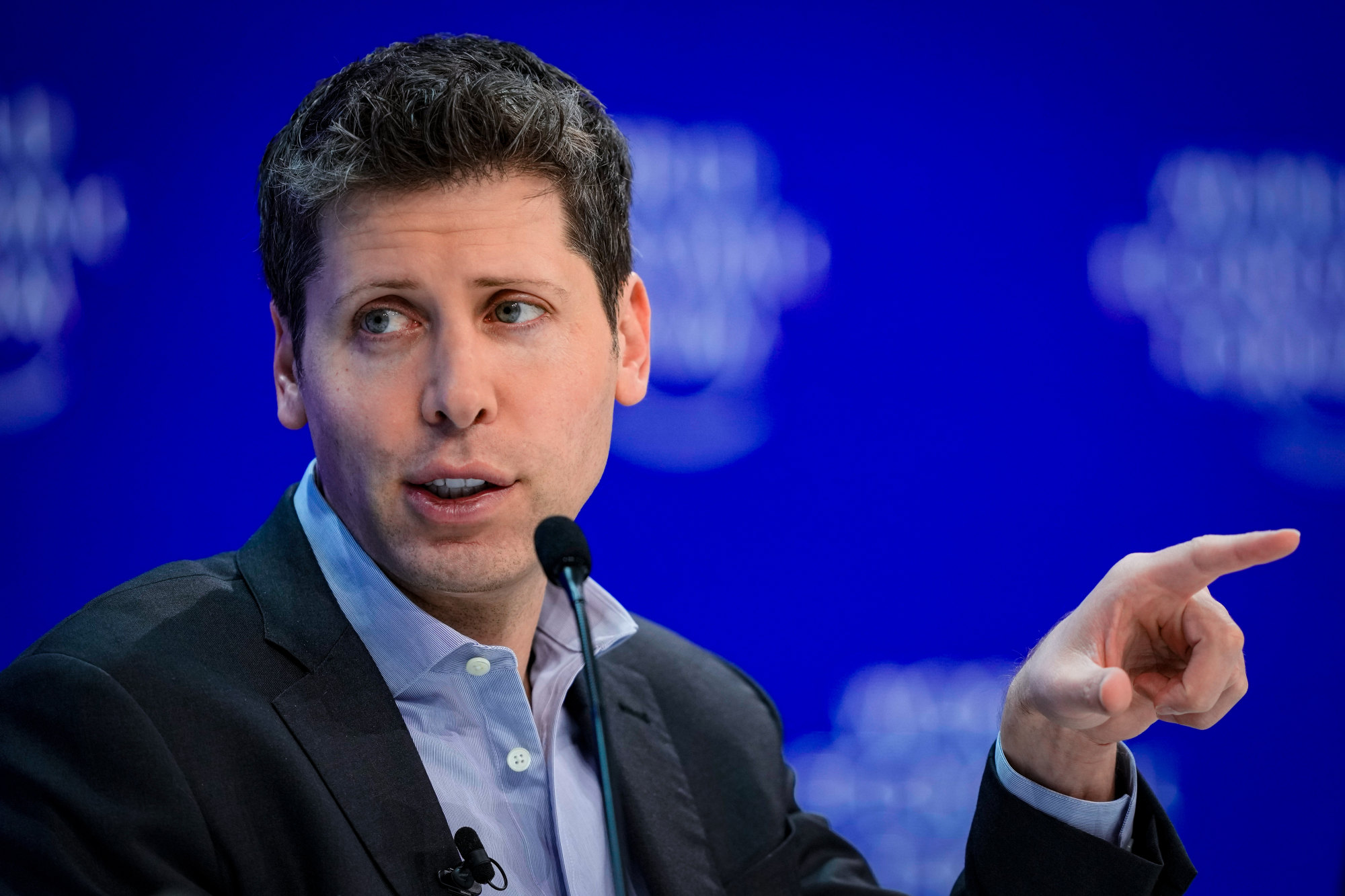
Student AI activists at Encode Justice release 22 goals for 2030 ahead of global summit in Seoul
- Encode Justice, founded by 19-year-old Sneha Revanur, is pushing governments to take more concrete steps on AI regulation to ensure equality and safety
- The AI 2030 document has attracted high-profile signatories including former Taiwan digital minister Audrey Tang and AI computer scientist Yoshua Bengio
While founded in the US, Encode Justice has participation from students in 30 countries, according to its website. The Generation Z activists have also found some high-profile academics and officials from around the world to join as signatories to the AI 2030 document, including former Taiwan digital minister Audrey Tang.
“Obviously we have a pretty clear case to make here [given that] we’re the generation that’s actually going to inherit the impacts of these technologies,” Revanur said. “So world leaders have a particular duty to us to ensure that … they’re actually keeping [this] in mind as they pursue governance going forward.”

Tang – whose term ended with that of Taiwan President Tsai Ing-wen on Monday – said she was drawn to lending her name to the document because of Encode Justice’s “comprehensive approach to ethical AI development, focusing on inclusivity and safety”.
“Guiding AI development from a ‘race to power’ towards a ‘race to safety’ is our shared mission, and I hope this call can raise awareness around it,” she said.
Neil Zhu Xiaohu, the founder of the Centre for Safe AGI (artificial general intelligence) and one of two AI 2030 signatories from mainland China, said he came across the goals when friends shared them on social media.
“Young people should be heard, which is important for the future of humanity,” he said. “I hope people can turn to a safety-first approach in the next few years so that we can navigate the AI era.”
Countries around the world are currently racing to find ways to grapple with concerns raised by AI around issues such as ethics, safety and privacy. Entrepreneurs such as Tesla CEO Elon Musk and OpenAI CEO Sam Altman have warned of potential existential threats from AI, as have researchers like groundbreaking AI computer scientist Yoshua Bengio, another AI 2030 signatory.
“We’re excited about the fact that clearly policymakers in China are taking this seriously. We hope to use that to our advantage to build international consensus,” she said. “But … there are some tension points when it comes to the values and priorities that we are guided by and the values and priorities that might be guiding some of these frameworks.”
Encode Justice seeks to enhance the opportunities available from AI rather than regulate the technology away. At the same time, some of its goals for 2030 have a clearer path to realisation than others.
An international treaty on the prevention of fully autonomous offensive weapon systems, for example, could be modelled after something like the Convention on Certain Conventional Weapons, according to Encode Justice. Others have said AI needs something akin to the Treaty on the Non-Proliferation of Nuclear Weapons.
“I think reducing potentially catastrophic risks is an area that both [the US and China] have been quite open in dialogue about,” said Luke Drago, the AI and democracy advisor at Encode Justice based in the UK and a co-author of AI 2030. “This is an area that we think is probably primed for international cooperation.”

“Beijing and Washington have been ratcheting up the frequency and depth of … conversations on AI alignment,” he added. “I find that encouraging – though more really must and can be done.”
Another major concern of the document is the impact AI will have on work and income inequality. It asks that particular attention be paid to the Global South, which could be hardest hit, and calls for governments to set up a global retraining fund.
The sweeping scale of the AI 2030 document could make achieving everything a daunting task. Revanur also pointed out that Encode Justice members have encountered “age bias” affecting the “perception of our work”.
Wong, who knows some members of Encode Justice, said the AI 2030 goals are not a case of overreach from a student movement. “There are some fairly well-qualified, for their ages, and thoughtful voices in the leadership teams of the movement,” he said.
Still, the AI 2030 goals are ultimately an act of optimism.
“We’re very optimistic about the potential [of achieving these goals],” Drago said, “especially because AI applications can uplift emerging economies through innovations in healthcare, agriculture, education, it can bring down costs in major innovations for emerging economies as well.”
Revanur summed up the driving force behind Encode Justice succinctly: “We’re young; it’d be a crime not to be optimistic.”

